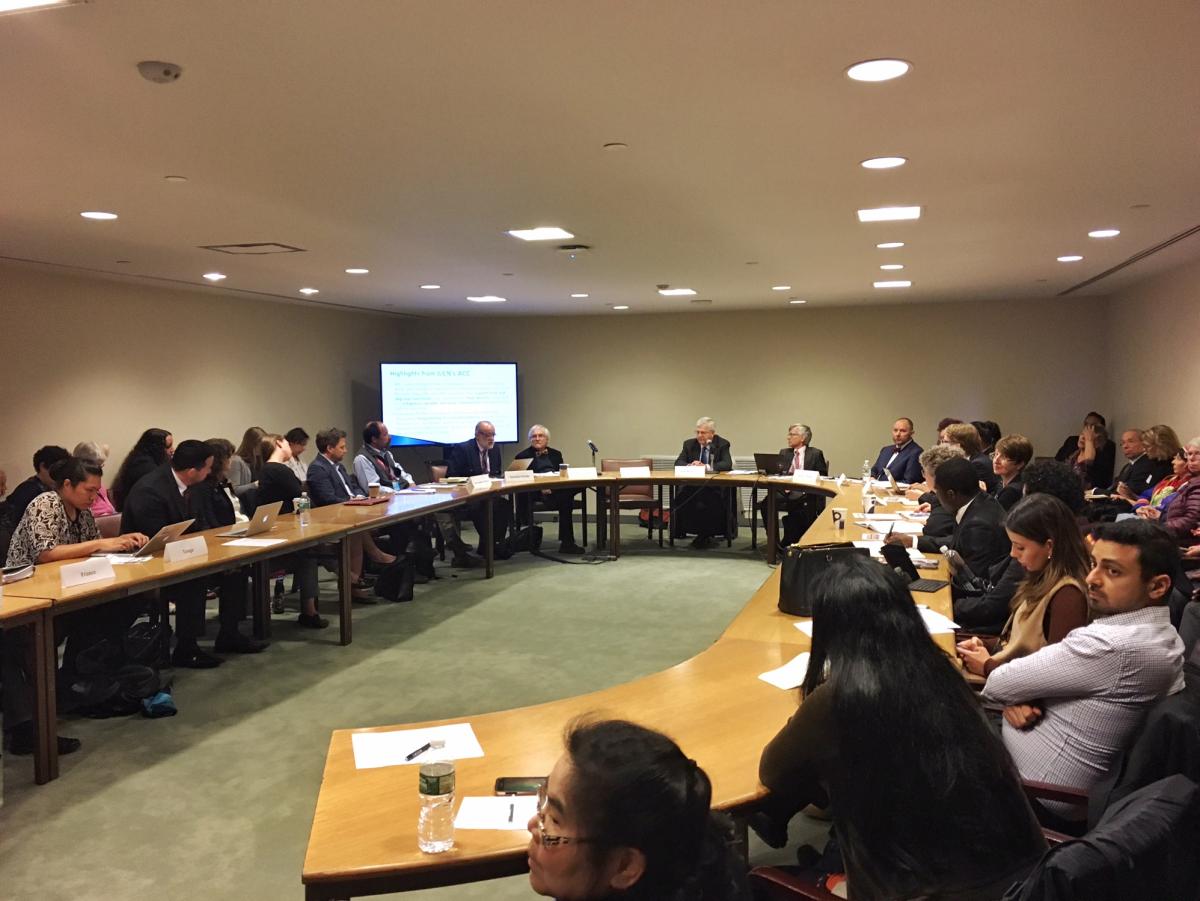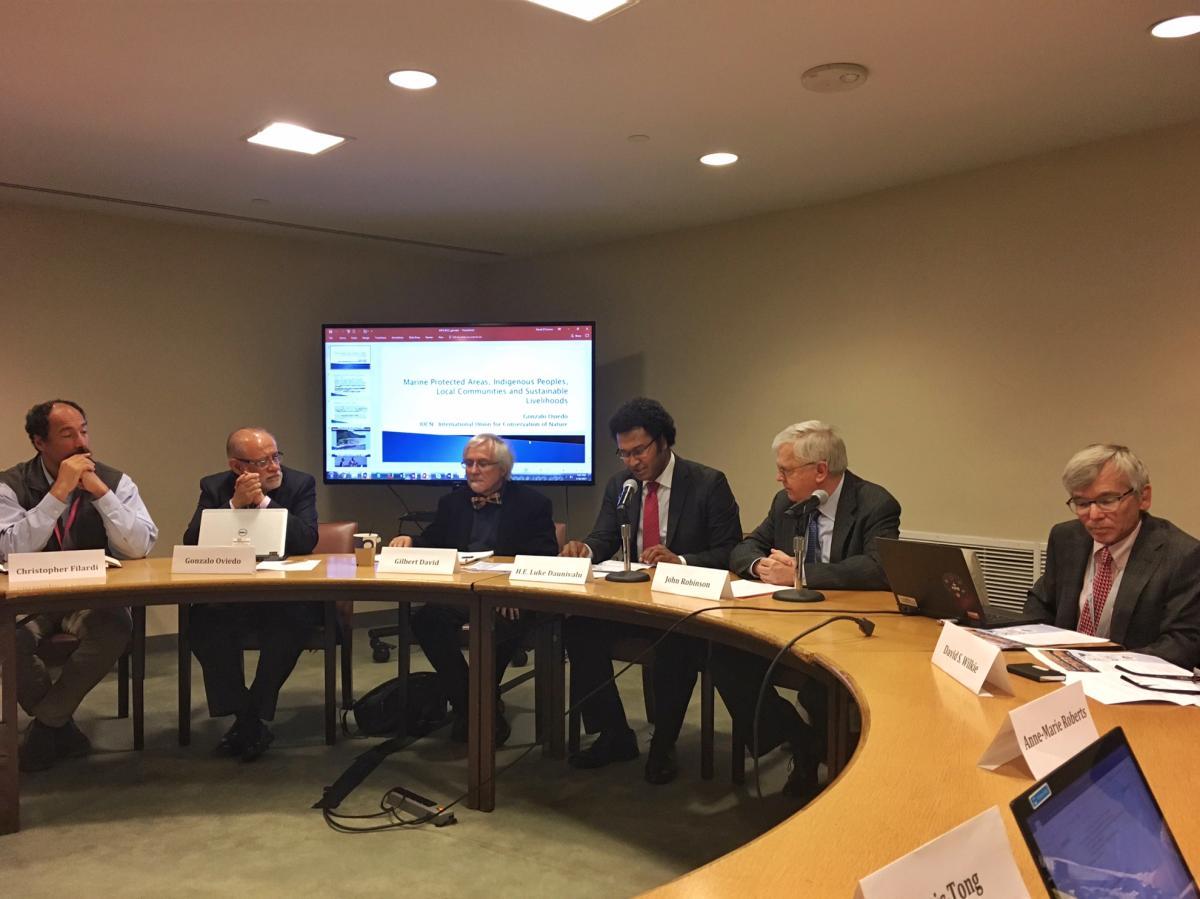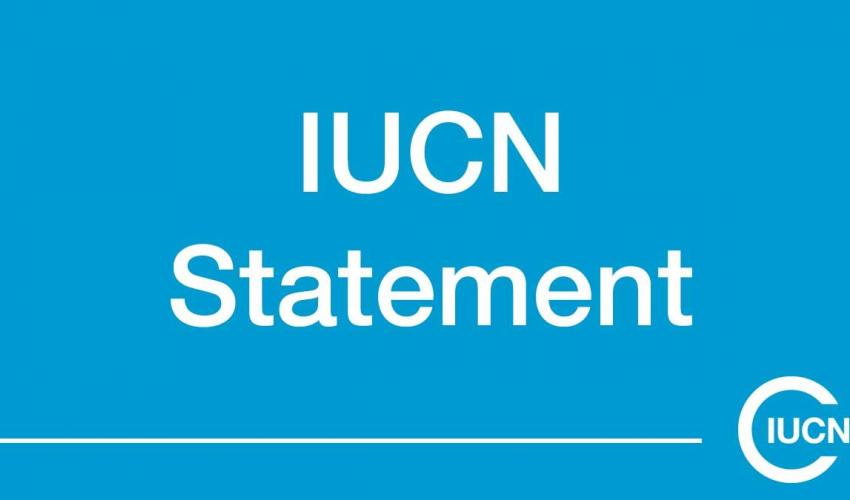IUCN at the UN Permanent Forum on Indigenous Issues: Marine Protected Areas, Indigenous and Local Communities, and Sustainable Livelihoods
In collaboration with the Wildlife Conservation Society (WCS), Institut de Recherche pour le Développement (IRD), the Government of France and the Government of Australia, the Permanent Observer Mission of IUCN to the United Nations hosted a side event, entitled “Marine Protected Areas, Indigenous and Local Communities, and Sustainable Livelihoods” on Wednesday, 26 April 2017 at the United Nations Headquarters in New York. The event was held during the 16th Session of the United Nations Permanent Forum on Indigenous Issues that took place from 24 April to 5 May 2017.
A summary by the Permanent Observer Mission of IUCN to the United Nations
The event was part of the Knowledge Dialogue Series that IUCN and WCS have been hosting at the United Nations throughout 2017. The Knowledge Dialogues are designed to stimulate discussion among UN officials and other stakeholders around key sustainable development challenges on the international agenda. This year’s Knowledge Dialogues have a strong focus on ocean and marine issues in the lead up to the UN Ocean Conference that is to be held at UNHQ from 5 to 9 June 2017.
The side event aimed to highlight the unique challenges faced by indigenous and local communities in coastal areas and examine their roles in the creation, implementation and management of marine protected areas (MPAs). Examples of sustainable MPA management through inclusive partnership with local and indigenous communities were presented by an expert panel.
H.E. Luke Daunivalu, the Deputy Permanent Representative of Fiji to the United Nations, provided the opening remarks, highlighting the need for urgent action in ocean conservation at all levels, including member states, civil society and the business sector. John Robinson, the Executive Vice President of Conservation and Science at WCS and Vice President and Councillor of North America and the Caribbean of IUCN, served as the facilitator for the event.
The expert panel opened with Gilbert David, Research Director at the IRD in Montpellier, who cited a number of examples from his extensive field experience of why MPA management had failed, largely to do with lack of effective and timely engagement of indigenous and local communities in decision making. He also emphasized the importance of biocultural diversity, stressing that local knowledge of marine biodiversity was disappearing at an even faster rate than the biodiversity itself. Thus, further studies into this biocultural diversity are urgently needed. Gonzalo Oviedo, Senior Adviser of the IUCN Social Policy Programme, then highlighted some of the landmark resolutions related to indigenous communities that came forth from the IUCN World Conservation Congress that occurred in Hawai’i in September 2016. He stressed the fundamental yet insufficiently recognized role that indigenous peoples and local communities play in marine conservation and called for their greater empowerment and recognition of their rights.
Chris Filardi, Senior Scientist at the Betty and Gordon Moore Center for Science of Conservation International reflected upon his years of fieldwork and underlined how it was absolutely central to have indigenous and local community cooperation in any conservation work undertaken, whether it be marine or terrestrial ecosystems. David S. Wilkie, Executive Director of Conservation Measures and Communities at WCS, featured indigenous and community conserved areas (ICCAs) and locally managed marine areas (LMMAs) in Canada, Fiji, Madagascar and Kenya. He also noted the challenges that ICCAs specifically face, including insufficient support to build governance systems, organized crime’s attraction to the high value resources located in these areas, and ineffective support of the arresting authority.
Eric Tong, Ph.D. Candidate at the Hawai’i Institute of Marine Biology, University of Hawai’i at Mañoa, and Anne-Marie Roberts, National Director of the Department of the Prime Minister and Cabinet’s Regional Network of the Government of Australia, were also featured speakers. They presented the perspectives of indigenous peoples on marine protected area management. Eric Tong highlighted that, in non self-governing territories like Hawaiʻi and Tahiti, indigenous marine resource management is not just an exercise in cultural agency, but also an act of self-determination. Anne-Marie Roberts presented a statement by the Torres Strait Islanders.
For more information, contact: evaline.cho@iucn.org





